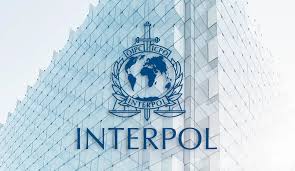A recent announcement by the head of Syria’s National Commission for Transitional Justice has ignited sharp criticism from legal experts, who accuse the body of misleading the public by overstating its authority in pursuing the extradition of former Syrian President Bashar al-Assad and his brother Maher al-Assad through Interpol.
Justice Commission Declares Effort to Pursue Assad Family
In a televised interview with Saudi broadcaster Al Arabiya, Abdel Baset Abdel Latif, President of the National Commission for Transitional Justice, declared that the Commission had opened communication channels with Interpol and other international bodies in an effort to “pursue perpetrators from the Assad family and others proven to have committed crimes of torture and murder against the Syrian people.”
He confirmed that both Bashar al-Assad and Maher al-Assad—the latter being the former commander of the notorious Fourth Armoured Division—are among those the Commission seeks to have extradited. Abdel Latif added that work is underway to establish a reparations fund for victims of human rights violations and emphasized the Commission’s commitment to prosecuting all those responsible, including non-state actors such as Lebanon’s Hezbollah.
These efforts, he stated, are grounded in Articles 48 and 49 of the transitional constitutional declaration, and based on a presidential decree issued by Syria’s interim president, Ahmad al-Sharaa, in May 2025, establishing the Commission as part of the post-conflict institutional framework.
Legal Backlash: “A Misleading and Legally Baseless Declaration”
The announcement has drawn fierce criticism from legal experts who argue that the Commission is exceeding its authority and misrepresenting the legal realities of international law enforcement.
Among the most vocal critics was Ghazwan Koronfol, a prominent lawyer and President of the Free Lawyers’ Association, who called for Abdel Latif’s immediate resignation.
“The statement is not only misleading but borders on political deception,” Koronfol said. “On what legal basis does Interpol apprehend Bashar and Maher? Is there even a judicial warrant against them issued by a competent court? Which court, and when?”
He went on to ridicule what he described as a naïve belief that Interpol would act on informal requests: “Do they think that saying ‘Dear Interpol, please go arrest this person and send him over,’ will be enough to prompt action? That’s not how international law works.”
What International Law Requires
According to legal specialists in international criminal law, Interpol does not act on political will or rhetorical declarations. To issue a Red Notice or carry out extradition procedures, Interpol requires a formal arrest warrant issued by a recognized judicial authority—either national or international—based on criminal charges supported by concrete evidence.
Moreover, Interpol operates under a strict principle of political neutrality, as outlined in Article 3 of its Constitution, which prohibits the organization from intervening in matters of a political, military, religious, or racial character. This principle is designed to prevent the misuse of Interpol for political retribution.
Currently, the Transitional Justice Commission in Syria does not possess the judicial authority or prosecutorial standing required to submit official extradition requests to Interpol. Unless explicitly authorized by the judiciary or the executive branch of the transitional government—and recognized as such by the international community—its communications with Interpol are unlikely to carry legal weight.
Symbolism Versus Legal Process
While the Commission’s intentions reflect a broader desire for justice and accountability in post-Assad Syria, legal analysts warn against conflating symbolic political moves with enforceable legal actions. Experts emphasize that the credible path to justice lies in documenting crimes, initiating prosecutions through national or international courts, and coordinating with appropriate judicial authorities, including the Ministry of Justice and Public Prosecution.
In cases involving international crimes, referral to bodies such as the International Criminal Court may be possible, provided Syria becomes party to the Rome Statute or receives a UN Security Council referral.
As Syria embarks on a fragile path toward transitional justice, reconciling political aspirations with the constraints of international law remains a complex challenge. While the desire to hold former regime leaders accountable is widely shared, true accountability will require legal precision, institutional credibility, and international cooperation—not rhetorical overtures or misinterpretations of Interpol’s role.
In the words of one legal expert: “Justice cannot be summoned by decree. It must be built case by case, file by file, before the eyes of the law.”


